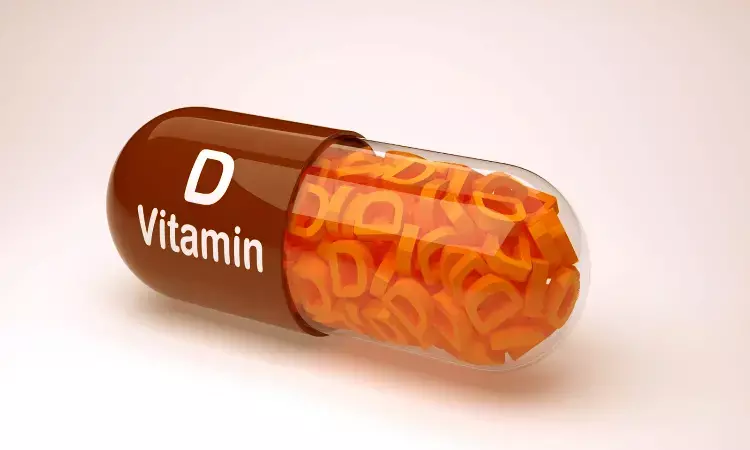- Home
- Medical news & Guidelines
- Anesthesiology
- Cardiology and CTVS
- Critical Care
- Dentistry
- Dermatology
- Diabetes and Endocrinology
- ENT
- Gastroenterology
- Medicine
- Nephrology
- Neurology
- Obstretics-Gynaecology
- Oncology
- Ophthalmology
- Orthopaedics
- Pediatrics-Neonatology
- Psychiatry
- Pulmonology
- Radiology
- Surgery
- Urology
- Laboratory Medicine
- Diet
- Nursing
- Paramedical
- Physiotherapy
- Health news
- Fact Check
- Bone Health Fact Check
- Brain Health Fact Check
- Cancer Related Fact Check
- Child Care Fact Check
- Dental and oral health fact check
- Diabetes and metabolic health fact check
- Diet and Nutrition Fact Check
- Eye and ENT Care Fact Check
- Fitness fact check
- Gut health fact check
- Heart health fact check
- Kidney health fact check
- Medical education fact check
- Men's health fact check
- Respiratory fact check
- Skin and hair care fact check
- Vaccine and Immunization fact check
- Women's health fact check
- AYUSH
- State News
- Andaman and Nicobar Islands
- Andhra Pradesh
- Arunachal Pradesh
- Assam
- Bihar
- Chandigarh
- Chattisgarh
- Dadra and Nagar Haveli
- Daman and Diu
- Delhi
- Goa
- Gujarat
- Haryana
- Himachal Pradesh
- Jammu & Kashmir
- Jharkhand
- Karnataka
- Kerala
- Ladakh
- Lakshadweep
- Madhya Pradesh
- Maharashtra
- Manipur
- Meghalaya
- Mizoram
- Nagaland
- Odisha
- Puducherry
- Punjab
- Rajasthan
- Sikkim
- Tamil Nadu
- Telangana
- Tripura
- Uttar Pradesh
- Uttrakhand
- West Bengal
- Medical Education
- Industry
Vitamin D deficiency may raise risk of getting COVID-19 infection: JAMA Study

Vitamin D treatment has been found to decrease the incidence of viral respiratory tract infection, especially in patients with vitamin D deficiency. However it is not known whether vitamin D is associated with coronavirus disease 2019 (COVID-19) incidence.
"Vitamin D is important to the function of the immune system and vitamin D supplements have previously been shown to lower the risk of viral respiratory tract infections," said David Meltzer, MD, PhD, Chief of Hospital Medicine at UChicago Medicine and lead author of the study. "Our statistical analysis suggests this may be true for the COVID-19 infection."
The research team looked at 489 UChicago Medicine patients whose vitamin D level was measured within a year before being tested for COVID-19. Patients who had vitamin D deficiency (< 20ng/ml) that was not treated were almost twice as likely to test positive for the COVID-19 coronavirus compared to patients who had sufficient levels of the vitamin.
Half of Americans are deficient in Vitamin D, with much higher rates seen in African Americans, Hispanics and individuals living in areas like Chicago where it is difficult to get enough sun exposure in winter.
"Understanding whether treating Vitamin D deficiency changes COVID-19 risk could be of great importance locally, nationally and globally," Meltzer said. "Vitamin D is inexpensive, generally very safe to take, and can be widely scaled."
Meltzer and his team emphasize the importance of experimental studies to determine whether vitamin D supplementation can reduce the risk, and potentially severity, of COVID-19. They also highlight the need for studies of what strategies for vitamin D supplementation may be most appropriate in specific populations. They have initiated several clinical trials at UChicago Medicine and with partners locally.
For further reference log on to:
doi:10.1001/jamanetworkopen.
Dr Kamal Kant Kohli-MBBS, DTCD- a chest specialist with more than 30 years of practice and a flair for writing clinical articles, Dr Kamal Kant Kohli joined Medical Dialogues as a Chief Editor of Medical News. Besides writing articles, as an editor, he proofreads and verifies all the medical content published on Medical Dialogues including those coming from journals, studies,medical conferences,guidelines etc. Email: drkohli@medicaldialogues.in. Contact no. 011-43720751


